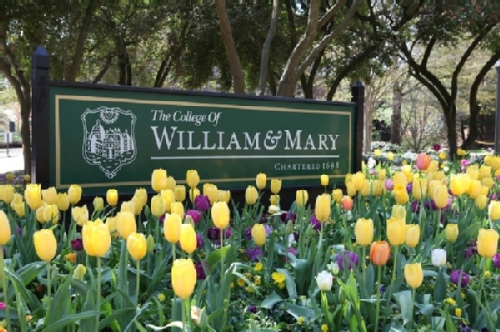
The Beta Delta Chapter of Hermandad de Sigma Iota Alpha, Inc. lost official recognition from the College of William and Mary Nov. 22 following a suspension as a result of violating the College’s hazing policies. This suspension comes at the conclusion of a university investigation that found the chapter responsible through an administrative hearing board.
Assistant Director for Student Leadership Development Joe Wheeless and Coordinator for Fraternity/Sorority Life Anne Strickland notified members of fraternities and sororities of this decision through an email Nov. 28.
“Hazing demeans and harms and has no place in our community,” Wheeless and Strickland said in the email. “SIA engaged in hazing behaviors including, limiting or prohibiting contact with non-members, social isolation, and forced eating of food. The hazing behaviors resulted in a physical and mental toll on new members.”
Due to guidance from their national organization, representatives from SIA were unable to respond to requests for comment on their chapter’s suspension.
Because SIA has lost privileges as a student organization, it will not be able to use College facilities and resources or participate in or sponsor extracurricular or social activities on campus while suspended. The earliest it can resume activity as a chapter is the 2018 fall semester.
According to Wheeless, before SIA can resume activity, the organization must comply with certain stipulations, such as submitting an updated guideline for its new member initiation and integration process that is hazing-free. If it does not work to comply with these stipulations while suspended during the 2017 spring semester, it will not be able to resume activity in the fall.
According to Wheeless, these stipulations and the findings of the administrative hearing board were the result of a process that lasted throughout the duration of the 2017 fall semester. Multiple reports were filed, all during previous semesters, which alleged that SIA engaged in hazing behaviors. The administrative hearing board found that these reports were true.
According to Associate Dean of Students Dave Gilbert, when a report of hazing is received, the quality of the information provided determines how the report is handled.
The determination of whether and how a matter is investigated depends on the quality of the information available and whether the information can be verified in some way,” Gilbert said in an email.
“The determination of whether and how a matter is investigated depends on the quality of the information available and whether the information can be verified in some way,” Gilbert said in an email. “For example, if we receive an anonymous and unverified report, our ability to investigate the matter may be limited. If, however, we receive a report from an identified source or the matter is independently verifiable, we will investigate the matter to the extent feasible. If the report asserts activity occurring that represents a potential and ongoing threat to safety or well-being, we may apply interim actions, such as restriction on activities or suspension, until the matter is investigated and resolved.”
When reports of hazing are received and university administration chooses to conduct an investigation due to the quality of information provided, there are different options for conducting the investigation and issuing judgement. According to Wheeless, SIA opted to have the investigation conducted by an administrative hearing board.
Student organizations can choose to resolve these cases administratively, request a hearing before a designated case administrator or choose a panel hearing. After one of these options has been selected, if the reports of hazing are found to be true, a student organization could face a warning, could be terminated or could lose recognition, depending on the severity of the matter and the previous disciplinary history of the organization.
According to Wheeless, the last time that a fraternity or sorority lost College recognition due to reports of hazing was in 2013, when the fraternity Lambda Chi Alpha lost recognition on campus due to reports that were found to be true. Since then, Lambda Chi Alpha has not been active on campus.
Wheeless said that it is not uncommon for the university to receive reports of hazing and that he has not spent a semester at the College where he has not received at least one or two reports of hazing. Gilbert said that the College typically receives between five and 10 reports a year, but not just from fraternities and sororities. Gilbert said that in the past, the College has received reports involving club sports teams, athletic teams, performing arts groups and service organizations.
Hazing certainly is not limited to fraternities and sororities,” Gilbert said in an email.
“Hazing certainly is not limited to fraternities and sororities,” Gilbert said in an email.
Hazing at the College is defined as any action taken or situation created intentionally, whether on or off campus, to produce mental or physical discomfort, embarrassment, harassment or ridicule. The College recognizes activities and situations such as paddling, the creation of excessive fatigue, physical and psychological shocks, scavenger hunts, road trips, wearing publicly apparel that is not normally in good taste and engaging in public behavior that is degrading or humiliating as examples of hazing.
At the College, the Hazing Prevention Coalition exists to prevent hazing. It is charged with helping the campus community recognize hazing, understand its implications and act when hazing is reported. It also provides student organizations with healthier means of member integration.
The Hazing Prevention Coalition is currently co-chaired by Assistant Director for Fraternity and Sorority Housing Shylan Scott and Director of Student Leadership Development Anne Arseneau ’89, M.A.Ed. ’92.
Another ramification of closing the investigation against SIA is that the Multicultural Greek Council, which was formed in late spring 2017, will cease operation. The MGC was formed to incorporate sororities and fraternities that were not part of the National Pan-Hellenic Council, the Panhellenic Council or the Interfraternity Council. It previously consisted of SIA and Delta Phi Omega Sorority, Inc., a sorority that formed on campus last academic year.
“Unfortunately, this means the Multicultural Greek Council formed in April 2017 will cease operation as a council until the return of SIA or another chapter is able to join MGC,” Wheeless and Strickland said in their email. “Delta Phi Omega Sorority, Inc. is still an active chapter at William & Mary and will continue to be supported by the fraternity/sorority advising team.”



































